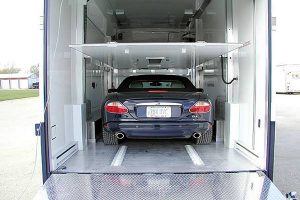There are pros and cons of owning a vehicle while at university, and every students decision ultimately depends on his or her unique circumstances. Not every student or family lives the same, so you should weigh the pros and cons to whether or not to let your teen own a vehicle while they are at college. If your college student is considering whether to bring a car to school, it is best to research available alternatives.
If they are going to be commuting regularly to work or an internship outside of school, having a car might make sense. A car may be particularly useful if your teen actually decides to take on an off-campus side gig. Having a car on campus could be useful if you need to pick up something quickly for a project.
If you keep a car with you while at university, you will find it easier to get back home during your break. Without a car, youall be spending more time on campus, taking longer walks, discovering opportunities, and making new friends. Unless college is safer than home, leaving the car behind gives you one less thing to worry about.
If you keep your car home, you avoid all of the risks and headaches that come with campus ownership, but you will still need to pay for maintenance, depreciation, and insurance. Dropping your own car also means that you do not have to deal with the hassles–and added costs–of campus parking. If you are living off-campus, having no car probably does not affect your costs too much; you also get the benefit of having more private space, with a private bedroom and bathroom.
Students who live on campus are likely to get by without having a car, since they can get to classes easily, eat in the dining halls, purchase books and necessities at the campus bookstore, and so forth. However, those who live off campus and must travel to the school might benefit from having a car. Typically, however, first-year students are living on-campus and would do well to leave their cars behind — at least until they transfer off-campus a year or two down the road.
The college might instruct your students to keep the car home for their freshman year. The college also may require that the students who are new students to leave their cars home in order to encourage these students to remain on campus and be more engaged with campus life. Colleges and universities across the country are working on making it easier for a student to leave his or her vehicle at home.
Many students do not need their cars at college, particularly if they do not have reasons to be off-campus, or if their homes are too far to travel to during breaks. Obviously, whether your students are going to be driving to college, having or not having a car might not be an issue. Whether this is a decision that you and your student have to make in the first year, or in the last, you might need to make the decision if you are going to bring a car to college with your student. No matter what your students thought, you and your student need to decide together if a car is needed.
Hopefully, the discussion helps you make the decision whether a student needs or does not need a car on campus. Be sure to ask campus officials about any programs or initiatives that they have in place to assist students who do not bring cars. If you end up allowing your teen to take his car, be sure you look at what is the best auto insurance rates for college students.
If you are taking a car to college and staying on your parents insurance, you might see a slight difference in premiums depending on your state (find out how to get a better deal). While comparison shopping may help you find the best college car insurance rates, gas, maintenance, and other expenses can quickly add up. Car buying will be something of a balancing act between what your students want and what a household, perhaps already stretched to the limit with the costs of college, can afford. If you or your teen cannot afford regular maintenance, gas, parking fees, insurance, and maybe a car payment, allowing your child to get a car might not be worth the expense.
If you do take a car to school, you might get a little more freedom, but you are going to be paying big bucks for the cost of ownership, risk being damaged or driving drunk, and probably be taking the unenviable role of a friends personal driver. More colleges are banning first-year students from taking cars to school, so it might not be the decision your students immediately confront. Key Takeaway A parking pass at a school can potentially cost thousands of dollars per year, something that many students do not think about before they decide to take a car to college.
Many campuses charge steep parking fees in an effort to discourage students from having cars on campus. Other fees related to cars some schools impose are a carjacking fee and a towage fee–each typically about $50 to $150–if you are issued parking tickets on campus and fail to pay.
Consider the following benefits to driving a vehicle to college, whether you are a student or the parent of a student. One of the most cost-effective ways for students to go to college is by living in a students residence hall and not having to have a car. Owning a car when attending college makes sense for some students, and others have few choices or desires, and might be fine with the alternative modes of transportation. On the other hand, if you are trying to save money and you know that you can get around using alternative forms of transportation, you may be comfortable starting college without a car.
If you expect to be leaving campus often, and the options of rideshare or transit simply aren’t cutting it, then taking a car may be your best option. Several car-sharing programs, including Zipcar and Enterprise Car Rental, partner with colleges and universities to make cars available to students just when they need them. This can be a fairly good indicator of not just your students driving, but also if they are going to make wise choices in terms of when and how they will use their cars.








